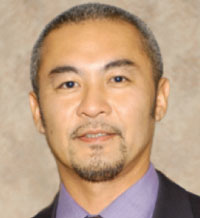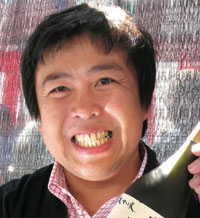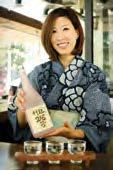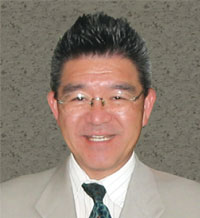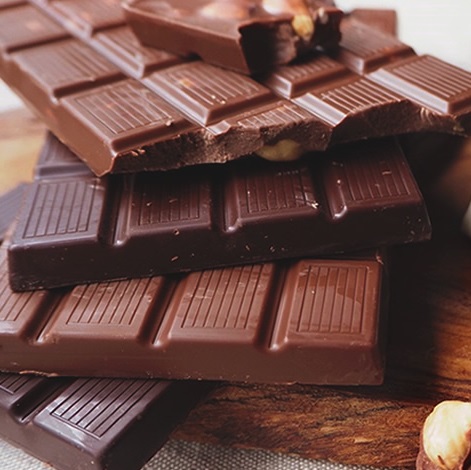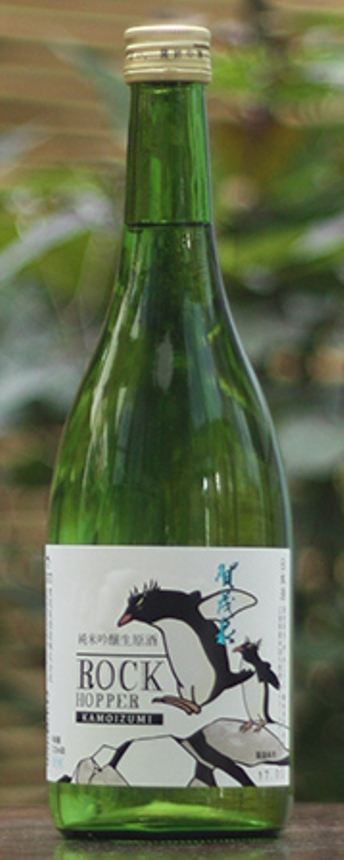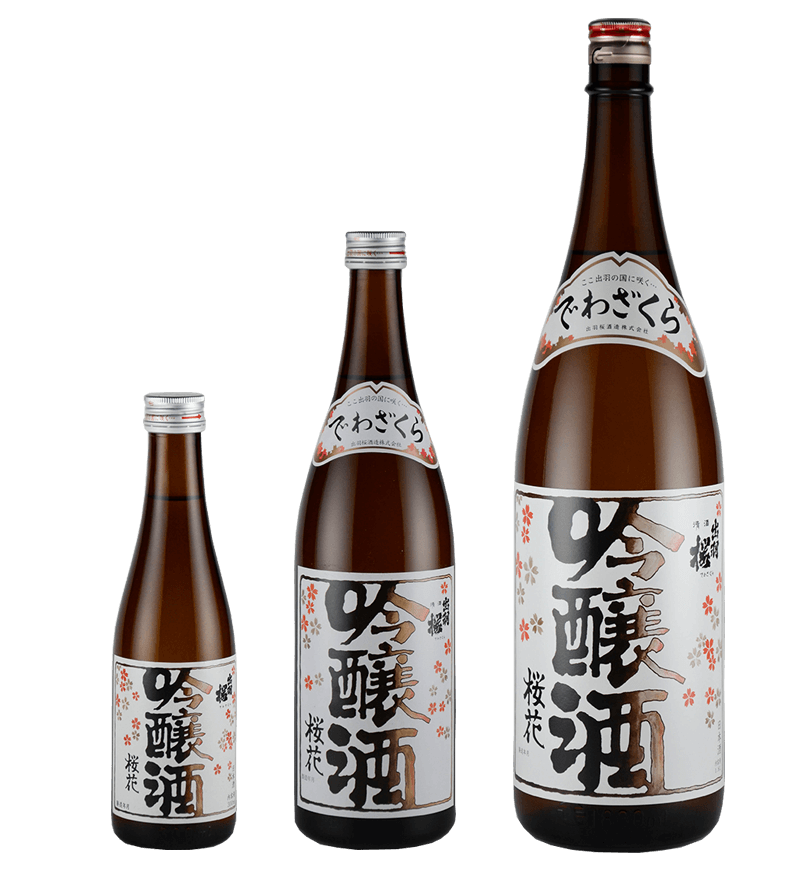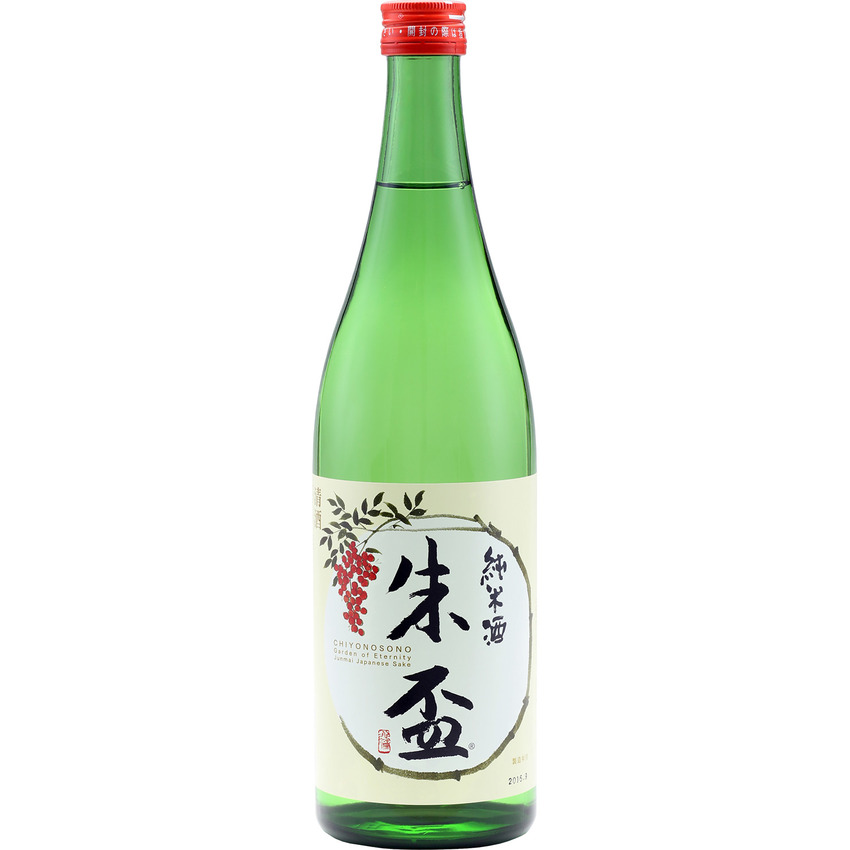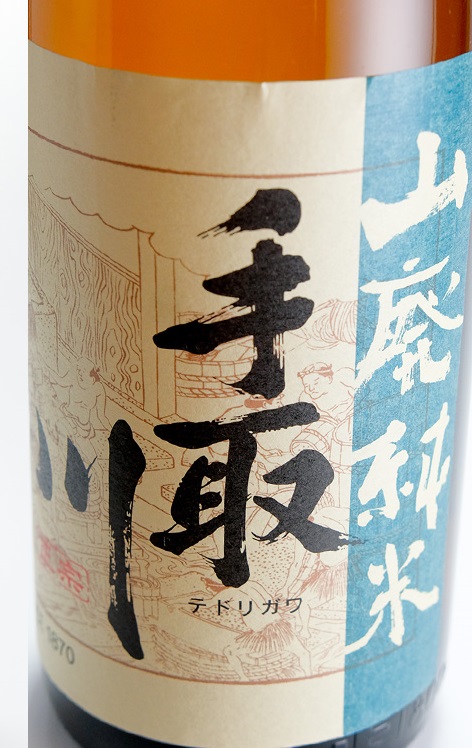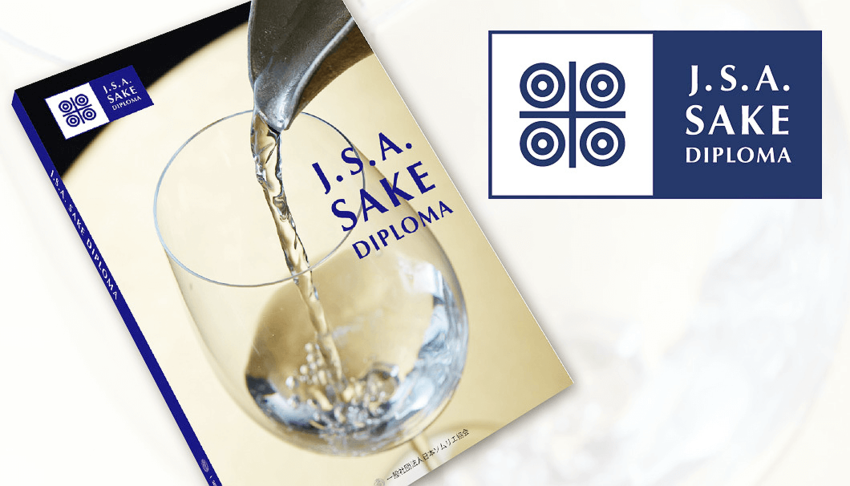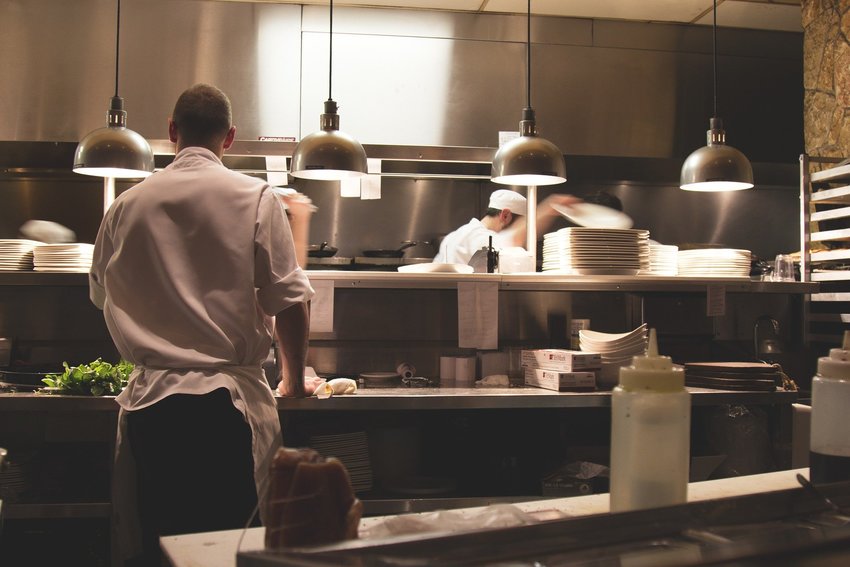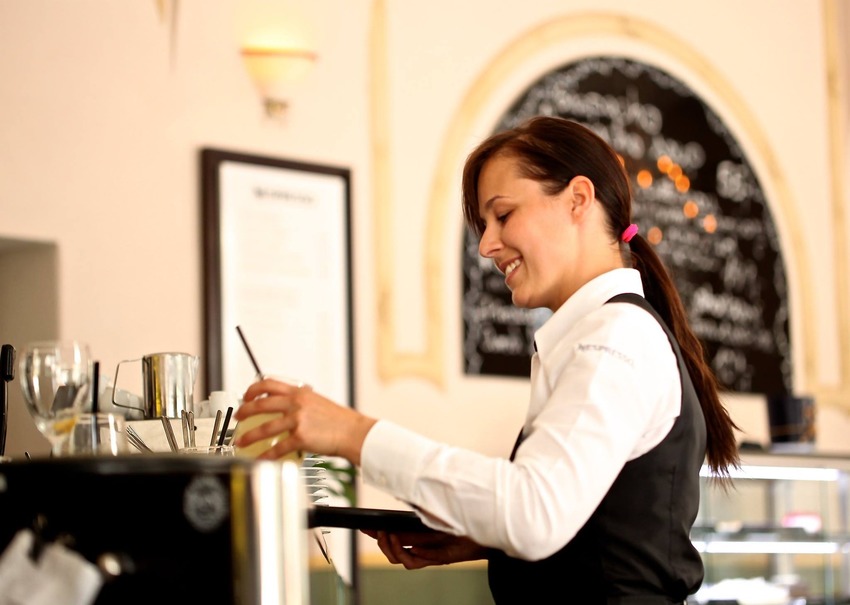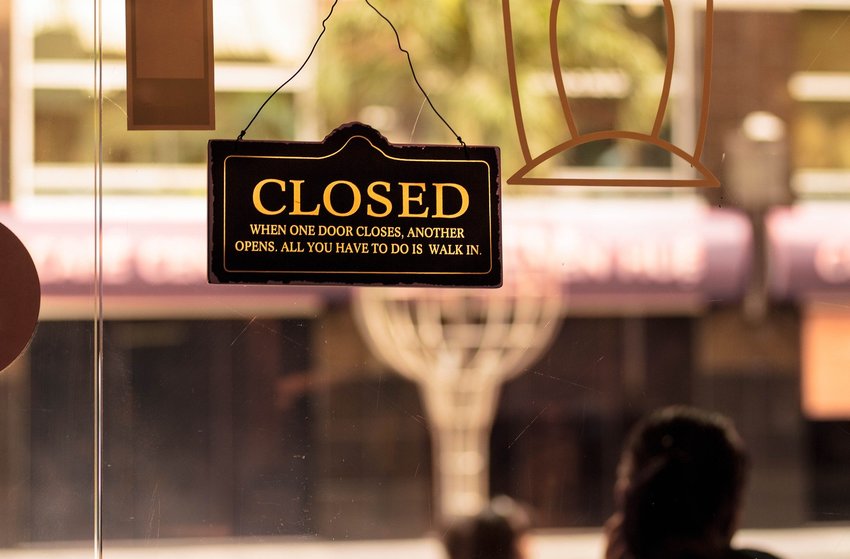
I covered in my previous column that many media outlets are recently covering Japanese sake. In this issue, I’d like to introduce the NHK program, “The Mark of Beauty” (
https://www4.nhk.or.jp/tsubo/).
Actor Masao Kusakari hosts this innovative, artistic TV program to introduce various hidden joys in everyday life. This program introduced Japanese sake, and how sake is produced today.
“Koji” (rice malt) was filmed at Nambu Bijin for this program.
This program introduced the traditional Futa-koji preparation method, and explained how this method contributed to the history and traditions of the Nambu Toji in Iwate prefecture, the largest Toji guild in Japan.
Also, the sake yeast widely used today is the BSJ (Brewing Society of Japan) yeast from the Brewing Association and prefectural yeast originally cultured in each prefecture. Also, this program introduced natural “flower yeast” the Tokyo University of Agriculture succeeded in culturing from wild flowers by isolation culture.
Collecting yeast from nature suitable for producing Japanese sake is very difficult. Not only is achieving this a great success, this program also introduced sake brewers utilizing this yeast in actual sake products with great success.
I’m truly grateful for this program that introduced authentic, traditional sake production culture. For Japanese nationals not very knowledgeable about Japanese sake, and foreign nationals who know even less about Japanese sake, I hope they learn about sake production through this program.
酒豪大陸「NHK美の壺」
前回のコラムでも日本酒について多くのメディアが最近取り上げてくれている事をお話ししました。今回もNHKの「美の壺」(
https://www4.nhk.or.jp/tsubo/)という番組のお話をします。
この番組は俳優の草刈正雄さんが暮らしの中に隠れたさまざまな美を紹介する、新感覚の美術番組ですが、今回は日本酒を取り上げてくれました。
日本酒を造る、というところに特化して、それがどのように今行われているのか番組では紹介していただきました。
南部美人ではこの番組の中で「麹」の部分を撮影していただきました。伝統的な蓋麹法を紹介していただき、さらにその蓋麹法が日本最大の杜氏派閥である、岩手県の南部杜氏の歴史と伝統にどのように寄与しているかなどもお話させていただきました。
また、酵母では、醸造協会のきょうかい酵母や、各県のオリジナルで培養する県酵母などで醸すのが今の主流なのですが、今回は東京農業大学が分離培養に成功した、自然の「花」から採取した「花酵母」についても詳しく紹介されました。
自然界から日本酒造りに向く酵母を採取するのは大変難しく、それを成功させるだけでもすごい事なのに、実際の商品になる日本酒に用いて大成功させている蔵も紹介しております。
このように酒造りという伝統文化の生粋の部分も惜しみなく紹介してくれるのは本当にありがたく、日本酒の事を知らない日本人、そして日本人以上にしらない外国人にも知ってもらえればうれしいです。
by Kosuke Kuji

![Tokyo Jizake Strolling (Self-Co...]()
![Tokyo Jizake Strolling (Self-Co...]()
By Ryuji Takahashi
Currently, the impact of COVID-19 Coronavirus is felt worldwide as many regions are self-confined to their homes. The virus is surely a serious problem not to be taken lightly, for which we cannot do much except to pray for the doctors and hope for the best as we take precautions like gargling, thorough hand-washing, etc. Many Japanese corporations instructed employees not to attend seminars or parties where ten or more people gather, which needless to say, prevents attendance at Japanese sake events and other events where an unknown number of people gather. No one can risk exposure to the Coronavirus by toasting with sake, so self-containment is the obviously correct measure to take. However, our organizers who proposed the sake events are troubled.
The venue was secured, the fliers were distributed, tickets were sold, and yet, the virus caused cancellations. It would be easier to accept if all attendees cancelled, yet only half cancelled, leaving the organizers pondering whether or not to proceed with the sake event. Our sake shop was also involved in organizing the event, yet the numerous cancellations left only several people still willing to attend. However, due to the passionate pleas to hold the event from the remaining customers still willing to attend, we changed the sake event to a dinner event with a sake brewery to welcome these guests. We invited Aichi Brewery from Aichi District, Shiga Prefecture to come and promote how the flavor of the same type of new sake can change dramatically depending on the tank used.
Sake favored by sake breweries may not always be popular among the general public. Therefore, understanding the gap between the sake producer and consumer awareness is a meaningful purpose to hold this dinner event. Cancelling the sake event would mean the loss of an opportunity to research sake completed by sake brewers (new products). Producing sake that sells require marketing research. To lose the opportunity for this research could deal a huge blow to the sake brewers as well. Currently, customers are not eating out at restaurants in Japan, rumored to close and incur significant losses during the cherry-blossom viewing season, when restaurants normally make great money. Similarly, sake shops are also hit by less business transactions with restaurants. Breweries will also feel this fiscal impact as well.
Even when the restaurant industry returns to business as usual, their business will still be impacted if sake shops and breweries are still closed. Currently, I’m sorry to say to these restaurants that we consumers have no choice but to drink sake at home. The demand among younger generations and female consumers to drink sake at home is recently declining. Under these circumstances, why not rediscover the joy of drinking sake at home? Purchasing your favorite type of sake bottle, sake, appetizers, and enjoying your sake leisurely at home while watching TV is fun. Novels containing scenes where sake is consumed can also stimulate one’s appetite to keep drinking. It will take a long time for sake breweries, sake shops, and restaurants to return to business as usual. However, please be careful with your health, pray, and enjoy your sake at home.
東京地酒散歩(自粛ムード)
今、世界中でコロナウイルスの影響で外出自粛のムードになっている。確かに安易に考えてはいけない問題であり、医者に頑張ってもらうしかなく、我々はうがいや手洗いなどの防衛策を行っていくしかない状態だ。日本企業の多くが、10名以上のセミナーや宴会に出席禁止の指示を社員に出しており、日本酒イベントなど不特定多数の人間が集まる趣味のイベントは以ての外である。日本酒で乾杯と言ってコロナウイルスにかかっては世話ない訳で自粛は当然の判断だと思う。しかし、既にイベントを打ち出していた主催者は困っている。会場を押さえ、チラシも配り、チケットも売れている状態でキャンセル続出。いっその事なら全員キャンセルならまだ諦めもつくが、半分キャンセルなどはイベントを実施するか悩むところである。実は当店もイベントを打っていたがキャンセル続出で参加者が一桁台になったしまった。しかし、残ったお客様から熱烈な開催要望があった為、イベントというよりも酒蔵との食事会と銘打って数名の酒蔵会を行った。今回は滋賀県愛知郡の愛知酒造に上京してもらい、同スペックの新酒がタンクにより味が大きく変わるというのを参加者に知ってもらう会とした。酒蔵が気に入っている酒が必ずしも一般のお客様にウケるわけでは無く、造り手と消費者の意識のズレを知る意味でも今回の会は意味のある物となった。日本酒イベントが無くなるということは、酒蔵的にも出来あがった酒(新商品)などのリサーチの場を失う事になる。売れる酒を造るにはマーケティングリサーチは必須だろう。その場が無くなるというのは、酒蔵的にも打撃なのではなかろうか。現状、
飲食店は客足が遠のいていて、花見時期に大きく儲ける飲食店などは閉店してしまうかもしれないと言われている。それに付随して、酒販店も飲食店との取引量が減ってしまう。そしてそのしわ寄せは酒蔵にも来るだろう。
飲食店が通常に戻ったとしても、酒販店や酒蔵がクローズしていては意味がない。現状は飲食店には申し訳ないが、酒は家で飲むしかない。若者や女性の家呑みの需要が減っている昨今。この様な時だからこそ、新たに家で酒を飲む楽しさを再探求してみてはいかがだろうか。好きなタイプの酒器を買い、好きな酒の肴を用意し、好きな酒をテレビでも観ながらダラダラ飲むのも楽しいものである。酒を飲むシーンが出てくる小説を読むのも活字が肴になり酒が進む。酒蔵・酒販店・飲食店の全てが元通りになるには、まだまだ時間がかかるだろう。しかし、今は健康に気を付けて家呑みしながら祈るしかない。

By Ayaka Ito
An event of pairing of Japanese sake and chocolate was held. The chocolate for this event was picked from the selection from Dandelion Chocolate shop, one of the very few places in the world, where craft chocolate is made from single-origin cacao beans. The chocolate bars of Dandelion Chocolate are made with only cacao beans and cane sugar, and do not contain cocoa butter or vanilla essence. Their unique flavors come from natural cacao beans produced by fermentation and roasting. For this event, 4 kinds of chocolate were ordered from their main shop in San Francisco.
Pairing details
1. Piura Blanco, Peru and Ouka, Ginjo, Yamagata Prefecture
Tasting note: Green grapes and maple
In this pairing, the acidity of green grapes and the aroma and sweetness of Ouka go well together, and make both taste so much better than when tasted individually.
2. Kokoa Kamili, Tanzania and Shuhai, Junmai, Kumamoto Prefecture
Tasting note: Mango and citrus
In this pairing, the citrus flavor in the chocolate, combined with Shuhai’s citrus fruit-like aroma that resembles orange flowers and subtle sweetness, create a good harmony.
3. Mantuano, Venezuela and Tedorigawa, Yamahai, Ishikawa Prefecture
Tasting note: Roasted almonds, chocolate fudge, and sea salt
Pairing with Tedorigawa brings out the richness of chocolate produced by the roasting of beans, and gently embraces it.
4. Maya Mountain, Belize and Kamoizumi, Junmai-Ginjo undiluted sake, Hiroshima Prefecture
Tasting note: Honey, caramel, and creamy strawberries
Since this sake is undiluted, it has natural freshness and richness at the same time, and the flavor of creamy strawberries is enhanced by being combined with this sake.
The Piura Blanco’s tasting note says green grapes and maple. When I tasted the chocolate by itself, I tasted some unique acidity, which I did not care for, however, when it was combined with Ouka of Dewazakura Brewery, a marvelous harmony was created by added gracious aroma and tender sweetness of Ouka. On the contrary, when combined with sweet and sour chocolate called Ambanj, whose flavor reminded me of refreshing citrus, and strawberry or raspberry jam, the acidity of the chocolate contradicted with Ouka’s clean after-taste, and I couldn’t say it was a good pairing. Two different tastes make a harmony and create the third taste. That is the best part of pairing. I feel excited as if I am going to explore an unknown world. I urge everyone to try pairing sake with familiar ingredients and food items around you! You might discover things unexpected!
日本酒とチョコレート
日本酒とチョコレートのペアリングを開催しました。チョコレートはシングルオリジンのカカオ豆からチョコレートを作る、世界でも数少ないクラフトチョコレートのお店、ダンデライオン•チョコレートからセレクト。ダンデライオン•チョコレートのチョコバーは、カカオ豆ときび砂糖からのみ作られており、ココアバターやバニラエッセンス等は入っておらず、特徴のある風味は、発酵と焙煎によってつくり出された、カカオ豆本来の味わいからきています。今回は4種類のチョコレートをサンフランシスコ本店よりオーダーしました。
ペアリングの詳細
①Piura Blanco, Peruと桜花 吟醸 山形県
テイスティングノート:青ブドウとメープル
青ブドウの酸味と桜花の香りと甘みがマッチして、個々で食べるよりも一緒に食べた方が何倍も美味しくなるペアリング。
②Kokoa Kamili, Tanzaniaと朱盃 純米 熊本県
テイスティングノート:マンゴーとシトラス
チョコレートに含まれるシトラスな味わいとオレンジの花を思わせる柑橘系の朱盃の香りとほのかな甘みが調和したペアリング。
③Mantuano, Venezuelaと手取川 山廃純米 石川県
テイスティングノート:ローストアーモンド、チョコレートファッジ、シーソルト
手取川と合わせることで、チョコレートの焙煎によって生まれたコクを引き出し、まろやかに包み込んでくれます。
④Maya Mountain, Belizeと賀茂泉 純米吟醸生原酒にごり 広島県
テイスティングノート: ハチミツとキャラメル、クリーミーな苺
生原酒にごりなので、フレッシュさと芳醇さを持ち合わせており、一緒に合わせることでお酒がクリーミー苺の味わいをより引き立たせてくれるペアリング。
Piura Blancoのテイスティングノートは青ブドウとメープルで、チョコだけで食べると独特な酸味があり、あまり好みの味ではありませんでしたが、出羽桜の桜花と合わせると桜花の持つ華やかな香りと優しい甘みが加わり、素晴らしい調和をみせてくれました。それとは逆にAmbanjaという爽やかなシトラスと苺やラズベリージャムを思い出させる甘酸っぱいマダガスカル産のチョコレートと合わせてみると、チョコレートの酸が桜花のスッキリとした後味と反発してしまい、あまり相性がいいペアリングとは言えませんでした。2つの味わいが調和し、第3の味わいが生まれる。これこそがマリアージュの醍醐味であり、道なる世界への探検のようでワクワクします。皆さんも身近な食材や食べ物を日本酒に合わせてペアリングしてみると、意外な発見があるかもしれないので、是非試してみて下さいね。

![NHK News Progra...]()
NHK News Program “Today’s Close-up”
By Kosuke Kuji
Japanese sake is a central product in “Cool Japan Strategy” implemented by the Japanese government and increasingly featured recently by many media outlets both domestically and abroad.
One such program is a very popular TV program on NHK, “Today’s Close-up” (
https://www.nhk.or.jp/gendai/).
NHK “Close-up Today” is a news program that features social problems to the latest trends garnering much attention. This program delves deep into one theme at a time to report on the latest “today” on many themes domestically and abroad to date.
“Today’s Close-up” covered Japanese sake in November 2019.
I was interviewed in this program along with sake brewers expanding from Japan into the world market, American nationals producing sake in New York, and Japanese nationals producing sake in France, introducing the latest “today” surrounding Japanese sake from various angles.
Through meticulous interviews, many conducted overseas, this program features how Japanese sake is popularized worldwide, along with commentary on the future outlook for Japanese sake.
Studio guests included the chairman of the Japan Sommelier Association, very knowledgeable about Japanese sake; Shinya Tasaki, who started the “Sake Diploma” certification for Japanese sake with the Japan Sommelier Association; and various messages about Japanese sake.
Among these guests, the chief executive officer of “Dom Pérignon” took on the challenge to produce Japanese sake in Toyama City showed how Japanese sake is becoming more familiarized worldwide.
酒豪大陸「NHKクローズアップ現代プラス」
日本酒は日本政府が推し進める「クールジャパン戦略」でも中心的な位置にいいます。そんな日本酒ですが、最近は日本国内外のマスコミでも大きく取り上げられることが増えてきました。
その1つがNHKでも大変人気の番組「クローズアップ現代プラス」(
https://www.nhk.or.jp/gendai/)です。
この番組は社会問題から注目のトレンドまで、ひとつのテーマを掘り下げ、「いま」を伝える報道情報番組であり、多くの日本内外の話題を取り上げてきました。
2019年11月にはこのクローズアップ現代プラスで日本酒が取り上げられました。
私も出演させていただきましたが、この番組は日本から世界へ挑戦する蔵元の私や、アメリカニューヨークでSAKEを造るアメリカ人、フランスでSAKEを造る日本人など、様々な角度で日本酒の「いま」を取り上げてくれました。
綿密な取材と、海外での取材も多数行っており、日本酒が今世界でどのような形で浸透しているか、また日本酒の今後の未来についても語られています。
スタジオゲストは日本ソムリエ協会の会長でもあり、日本酒に大変造詣が深く、日本ソムリエ協会で日本酒の資格「サケディプロマ」を立ち上げた田崎信也会長が出演して、多くの日本酒に関するメッセージを出してくれました。
その中でもシャンパン「ドンペリ」の醸造最高責任者が富山で日本酒造りに挑戦する話題は、まさに日本酒のワールドワイドな姿を見せてくれました。

The National Restaurant Association Educational Foundation set up the Restaurant Employee Relief Fund to help restaurant industry employees experiencing hardship in the wake of the coronavirus disease (COVID-19) outbreak.
The Restaurant Employee Relief Fund (“Fund”) was created to help restaurant industry employees experiencing extraordinary hardship in the wake of the coronavirus disease (COVID-19) outbreak. Through this Fund, grants will be made to restaurant industry employees who have been impacted by COVID-19, including a decrease in wages or loss of employment. Grants will be awarded as soon as possible to those individuals who meet the prescribed eligibility criteria, as reviewed and verified by the National Restaurant Association Educational Foundation (NRAEF). This Fund is operated by the NRAEF, whose mission is to attract, empower and advance today’s and tomorrow’s restaurant and foodservice workers.
Your Eligibility
Funds will be available for restaurant and foodservice employees who can demonstrate that they:
・Worked on a part- or full-time basis in the restaurant industry for at least 90 days in the past year ; and
・Have had a primary source of income in the restaurant industry for the last year; and
・Have experienced a decrease in needed wages or loss of job on or after March 10, 2020 the result in a lack of resources to pay for essential expenses ; and
・Live in the United States, an overseas U.S. military base, or any U.S. territory*; and
・Are over the age of legal majority in their in their U.S. state or territory; and
・Meet other requirements demonstrating financial need as determined by the NRAEF.
Your Need For Funds
One-time grants are for short-term COVID-19 related hardships in paying any of the following expenses only:
・Home rent or mortgage ・Car payments or transportation costs ・ Utility bills
・Student loan payments ・Child care ・Groceries ・ Medical bills
For inquiries about the fund, please visit at www.rerf.us
* Depending upon the terms of certain contributions to the Fund, certain amounts may only be available for distribution in limited geographic areas. Individuals related to employees or board members of the National Restaurant Association or National Restaurant Association Educational Foundation ARE NOT eligible for grants. All grants are made at the discretion of the National Restaurant Association Educational Foundation.
レストラン従業員救済基金設立
全米レストラン協会教育財団(National Restaurant Association Educational Foundation(NRAEF))は、レストラン従業員救済基金を設立した。この救済基金は、新型コロナウイルスの発生を契機に財政的に影響を受けたレストラン業界の従業員を支援するために設立され、 この基金を通じて新型コロナウイルスの影響を受けたレストラン業界の従業員に対し、賃金の低下や失業などで失われた賃金の補てんの為に助成金が給付されるというもの。この基金は全米レストラン協会教育財団が運営しており、この財団の使命は、レストランやフードサービス業界で働く人達の側に立ち支援することを目的としている。
尚、助成金は、全米レストラン協会教育財団によって所定の資格基準を満たす個人に給付される。
受給資格
レストラン従業員救済基金は、レストランやフードサービスの従業員が以下の項目を証明できる場合に利用できる。
・レストラン業界でパートタイムまたはフルタイムで過去1年間で少なくとも90日間働き、それが主な収入源になっている。
・2020年3月10日以降に賃金の低下または失業を経験し、生活に必要な費用の支払い不足が生じた。
・米国、海外の米軍基地、または米国の領土に居住している。
・米国の州または準州に居住し法定成人の年齢を超えている。
・NRAEFが決定した財務上の必要性を示す他の要件を満たしている。
基金の利用先
1回限りの助成金は、新型コロナウイルス問題で発生した以下の費用のいずれかを支払う際に適用される。
・家賃または住宅ローンの支払い ・自動車ローンの支払いまたは交通費
・公共料金の支払い ・学生ローンの支払い ・育児に関わる費用
・食料品購入 ・医療費支払い
尚、基金への申し込み、問い合わせは、www.rerf.us まで。
*基金への寄付の条件に応じて、一定の金額は限られた地域に給付される場合があり、全米レストラン協会または全米レストラン協会教育財団の従業員または理事会メンバーは、助成金給付の対象外で、助成金給付先は全米レストラン協会教育財団が決定する。

Where you can most likely predict the taste of wines from grape variety, vintage or production area, there is no standard to evaluate the taste of Japanese Sake.
There is an identification of Daiginjo, Ginjo, Junmai etc based on production method, but this is only the production method and doesn't indicate the compatibility with taste or dish. Also, if you look at the ingredients of rice or water, you can slightly distinguish the taste or aroma, but the taste will change depending on how you make it.
Regarding the compatibility with food, there is absolutely no way of seeing it from the label indication that is legally required as of today.
I would like to show you something from the label that may give you a hint even though it might be a slight amount.
Junmai: many can be enjoyed chilled or hot and goes well with a slight rich tasting dish or grilled item
Ginjo: most served chilled, has characteristic of splendid aroma and goes well with dishes that are topped with citrus items like yuzu or lemon ; for example, yakitori with lemon or ponzu with hamachi (young yellowtail) with ponzu etc.
Daiginjo: has considerable body and goes well with teriyaki or eel sauces or nikomi (hotpot with vegetables and/or meats/fishes). light body Daiginjyo goes well with dishes that use citrus items like Ginjo.
California made sakes: since it has slight acidity and body, it goes well with Mexican food.
Kimoto or Yamahai class sakes: goes extremely well with beef or pork dishes
---
日本酒の料理相性判断
ワインのように葡萄の品種、ヴィンテージや産地により大体の味を予測できるのに対して日本酒には、味を評価するための基準になるものがない。
大吟醸、吟醸、純米などの製法による識別はあるが、これはあくまでも製法であって、味や料理との相性を暗示するものではない。また、原料の米や水をとっても、若干の味や香りを判断することはできるが、これもどういう造りをするかで味も変わってくる。フードとの相性に関しては、現在の義務付けられているラベル表示からでは、全く読み取れない。
多少ではあるが、ラベルからヒントになるものをお教えしたい。
純米酒:冷から燗まで飲めるものが多く、多少の味の濃い料理や焼き物に合う。
吟醸酒:主に冷で、華やかな香りが特徴で柑橘類、柚子やレモンをかけられる料理との相性がよい、焼き鳥にレモン、ハマチの刺身とポン酢など。
大吟醸酒:結構ボディーのある大吟醸酒は、照り焼きやうなぎソース、煮込みなどと相性がよい。ボディーの軽い大吟醸は、吟醸酒同様柑橘系との料理に相性がよい。
カリフォルニア産酒:若干酸味とボディーがある分、メキシカン料理にもあう。
キモトや山廃系:牛や豚肉料理との相性が抜群によい。
---
日本清酒與食物的相容性判斷
葡萄酒可以根據葡萄品種、年份和地區大致預測口味,但清酒則沒有評估口味的標準。
儘管大吟釀,吟釀,純米等的生產方法有所區別,但這僅是一種生產方法,並不意味著其口味或與料理的相容性。即使可以根據使用作為原料的大米或水來判斷出一點味道和香氣,但是味道也會根據製作方式而變化。關於與食物的相容性,由目前的強制性標籤根本無法讀取。
儘管不多,但我也想告訴您一些從可以從標籤中讀到的提示。
純米酒:從冷到熱飲皆可種類繁多,並且適合味道略為濃郁的菜餚和燒烤菜餚。
吟釀酒:以冷飲為主,散發著濃郁的香氣,可與柑橘,柚子和檸檬味的料理搭配,如沾了檸檬的烤雞肉串、鰤魚生魚片和柚子醋等。
大吟釀酒:酒體飽滿豐厚的大吟釀酒,可以搭配照燒鰻魚醬和燉肉等料理。
酒體輕盈的大吟釀酒,跟吟釀酒一樣適合搭配柑橘類菜餚。
加州酒:略帶酸味和有一定口感的酒體,也可以搭配墨西哥美食。
Kimoto(生酛)和山廢:與牛肉和豬肉菜餚非常相配。
---
니혼슈(일본술)와 궁합이 좋은 요리 판단
와인은 포도의 품종, 빈티지, 산지에 따라 대략적인 맛을 예측할 수 있지만, 일본주에는 맛을 평가하는 기준이 없습니다.
다이긴죠, 긴죠, 준마이 등 제조 방식에 따라 구별이 가능하지만, 이는 어디까지나 만드는 방식일 뿐 맛과 요리와의 궁합을 나타내는 것은 아닙니다. 또한, 원료인 쌀과 물 역시 약간의 맛과 향을 판단하는 기준이 되기는 하지만, 이 역시 어떤 제조 방식을 사용하는가에 따라 맛이 달라집니다. 현재 의무화된 라벨 표시로는 음식과의 궁합을 전혀 알 수 없습니다.
준마이슈(純米酒): 5~10℃(히야, 冷)에서 30~40℃(누루칸, 燗) 정도의 온도로 마시는 경우가 많고, 다소 맛이 강한 요리나 구이와 잘 어울립니다.
긴죠슈(吟醸酒): 주로 차갑게 마시고, 화사한 향이 특징입니다. 감귤류, 유자, 레몬을 뿌리는 요리와 궁합이 좋습니다. 닭꼬치구이에 레몬, 방어회와 폰즈 소스 등과도 잘 어울립니다.
다이긴죠슈(大吟醸酒): 바디감이 묵직한 다이긴죠슈는 데리야키나 장어 소스, 조림 등과 궁합이 좋습니다. 바디감이 가벼운 다이긴죠슈는 긴죠슈와 마찬가지로 감귤류 요리와 잘 어울립니다.
캘리포니아산: 약간의 산미와 바디감이 있어 멕시코 요리와도 잘 어울립니다.
기모토(生酛)와 야마하이(山廃) 계열: 소고기나 돼지고기 요리와 찰떡궁합입니다.

A significant promotional group for Awasake was launched. On January 28, Japan Awasake Association was a historic day where approximately 30 members from the Liberal Democratic Party Parliament members gathered to launch the “Awasake Revitalization Group.” House of Representative member Toshiaki Endo from Yamagata Prefecture assumed the position of Chairman, while Yuko Obuchi of Gunma prefecture assumed the position of Secretary. Japan Awasake Association is striving to serve Awasake as the toast during the Tokyo Olympic and Paralympic Games. Therefore, this foundation party was attended by Yoshio Mori of the Tokyo Olympic and Paralympic Organizing Committee Yoshiro Mori, who presented a congratulatory message, which made this dream closer to reality. Also, the committee chairman Yoshiro Mori also became an honorary chairman of the parliament as well.
Also, the launch party was attended by members from the National Tax Agency, public offices, and representatives from the sake industry, expressing support for Awasake.
Still a new Japanese sake genre among both public and private organizations, high anticipation for this sake to become widespread was felt among attending members.
Japan Awasake Association chairman Noriyoshi Nagai greeted guests and expressed his resolve to enhance the quality of Awasake to increase export to levels comparable to champagne and wine to promote widespread consumption throughout Japan and win worldwide brand recognition.
Thanks to support from many attendees, Japan Awasake Association will continue to strive to become the chosen beverage for toasts worldwide. Thank you in advance for your support !
酒豪大陸「awa酒振興議連発足」
awa酒に最高の応援団が発足しました。2020年1月28日、awa酒協会にとって歴史的な日になりました。自民党の国会議員の皆さんが約30名集まり、「awa酒振興議連」を発足していただきました。衆議院議員の山形県の遠藤利明先生が会長に就任され、幹事長には群馬県の小渕優子先生という布陣です。awa酒協会は東京オリンピック・パラリンピックで乾杯酒を目指していますが、今回の設立総会には元総理でもある森 喜朗東京オリンピック・パラリンピック組織委員会会長も臨席していただき、応援メッセージをいただき、awa酒で東京オリンピック・パラリンピックの乾杯酒に現実味がかなり出てきました。さらにこの議連の名誉会長にも就任していただきました。
さらに発足総会には国税庁をはじめ、たくさんの官公庁の要職につく皆さん、日本酒関連の事業を担当する方々が参加してくれて、awa酒への支援表明をしていただきました。
まさに官民連携でこれから日本酒の新ジャンルであり、成長を大きく見込めるawa酒に期待をしてくれている事をひしひしと感じました。
awa酒協会の永井則吉理事長はあいさつで、シャンパンやワインの輸出数量に追いつくように品質を高めてブランド化し、多くの日本中、そして世界中の方々に認知してもらえるようにawa酒を育てて行くと決意表明しました。
たくさんの方々の応援をいただき、awa酒協会はこれからも世界の乾杯酒を目指し頑張っていきますので、応援をどうぞよろしくお願いします!

Before Honkaku (original) Wine took root in Japan in the past, people were drinking wine coolers or sweet port wines. Same with shochu, people in Japan were drinking 'Chu-Hi' or other shuchu cocktails before the boom of Honkaku Shochu.
It is a similar situation like it was in past Japan here in the U.S. now with people preferring to have Nigori sake, sparkling sakes or cocktails. There are probably quite a few of us Japanese in the business that have just happened to forget about their past and feel that it is not proper to drink Japanese sake cocktails etc.
Examples of Japanese sake or shochu cocktails listed below are not only recommended for someone who doesn't care for sake or shochu but also should be tried by people who like drinking the original Japanese sake or shochu.
* Sake Sangria made with sake and shochu : soaked with orange, apple and lime
*Mojito that uses sake and shochu: add yuzu (tangerine type fruit; Citrus juno) juice instead of lime
*Nigori sake cocktail : goes well with peach or mango syrup
*Martini made with sake and shochu
*Bloody Mary mixed with shochu and ponzu (a bitter or sour orange-based sauce) : use shichimi togarashi (mixture of cayenne pepper with other spices) as an added accent
Most of the many cocktails made with vodka can be made with shochu. For the finishing touch, we suggest that you add a little Japanese or Asian style flavor (yuzu or lychee) to make it exciting.
日本酒・焼酎カクテル
過去日本でも本格ワインが定着する前、ワインクーラーや甘いポートワインが飲まれていた。焼酎でも同じだが、本格焼酎のブームの前はチューハイやその他の焼酎カクテルが日本で飲まれていた。
現在アメリカは過去の日本のこの時期と似ており、にごり酒や発砲日本酒、カクテルの方が受け入れられている。我々日本人はつい過去の自分を忘れ、日本酒カクテルなどは邪道と思っている業界の人間も少なくないだろう。
下記にあげる日本酒・焼酎カクテル例は、酒や焼酎を苦手とする人にもお勧めしたいし、本格的な日本酒や焼酎を飲む方にもぜひ試していただきたい。
*日本酒と焼酎で作った酒サングリア:オレンジ、リンゴ、ライムを漬け込む
*日本酒と焼酎を利用したモヒート:ライムの代わりに柚子果汁を入れる
*にごり酒カクテル:ピーチやマンゴのシロップと相性が良い
*日本酒と焼酎で作るマティーニ
*焼酎とポン酢を混ぜたブラディーメリー:タバスコの代わりに七味唐辛子でアクセント付け
などなど。ウォッカで作れる多くのカクテルは大体焼酎で作ることが可能である。後は、ちょっとした日本やアジア的フレーバー(柚子やライチ)を追加してあげると面白い。
清酒和日本燒酒雞尾酒
以前,即使在日本,在純正葡萄酒紮根之前,已經常喝wine cooler和甜波特酒。日本燒酒也是如此,在純正日本燒酒興盛之前,日本就已經開始喝日式highball和其他日本燒酒雞尾酒。
現在的美國與過去那個時期的日本相似,濁酒、發泡清酒和雞尾酒等更受人歡迎。我等日本人終究忘記了過去的自己,我想許多業內人士認為清酒雞尾酒等是不入流的。
不論是不擅長喝酒、日本燒酒等的人;或是會喝純正清酒和日本燒酒等的人,都建議嘗試以下清酒和日本燒酒雞尾酒的例子。
*用清酒和日本燒酒製成的桑格利亞酒:放入橙,蘋果和萊姆
*加入清酒和日本燒酒的莫吉托:加入柚子汁代替萊姆
*濁酒雞尾酒:適宜搭配桃或芒果等的糖漿
*用清酒和日本燒酒製成的馬丁尼酒
*混合日本燒酒和柚子醋的血腥瑪麗:以七味粉代替塔巴斯科辣椒醬作調味
等等。為數眾多用伏特加製成的雞尾酒基本上都可以用日本燒酒製成。此後,添加少許日本或亞洲風味(柚子或荔枝)亦很有趣。
일본술 및 소주로 즐기는 칵테일
예전에 일본에서도 정통 와인이 정착하기 전에 와인쿨러나 달콤한 포트 와인을 즐기던 때가 있었다. 소주도 비슷한데, 정통 소주 붐이 일어나기 전에는 츄하이와 다른 소주 칵테일이 일본에서 인기였다.
현재 미국은 예전에 일본의 이러한 시기와 비슷해서, 탁주와 일본 발포주, 칵테일이 인기이다. 일본인은 이러한 예전의 자신을 잊고 일본술 칵테일 등은 진정한 술이 아니라고 생각하는 업계 종사자들도 적지 않을 것이다.
아래에 소개한 일본술 및 소주로 즐기는 칵테일 메뉴는 일본술이나 소주를 못 마시는 분들에게도 추천하고 싶고, 정통 일본술과 소주를 즐기는 분들도 꼭 맛보길 바란다.
* 일본술과 소주로 만든 술 상그리아 : 오렌지, 사과, 라임을 담근다.
* 일본술과 소주를 이용한 모히토 : 라임 대신 유자 과즙을 넣는다.
* 탁주 칵테일 : 복숭아나 망고 시럽과 잘 어울린다.
* 일본술과 소주로 만드는 마티니
* 소주와 새콤한 폰즈 식초를 섞은 블러디메리 : 타바스코 대신 고춧가루 향신료로 악센트를 준다.
등 다양하다. 보드카로 만들 수 있는 대부분의 칵테일은 거의 소주로 만들 수 있다. 마무리로 일본이나 동양적인 맛(유자나 리치)을 살짝 추가하면 색다른 맛과 향을 즐길 수 있다.

What kind of sake is "awa sake"? Not all sparkling Japanese sake can be referred to as "awa sake", but only those 'certified' by the Japan Awasake Association are referred to as awa sake. An external research institute entrusted by the association certifies awa sake.
"Awa sake" is defined as:
1. Japanese sake produced from rice *1 and rice malt,
2. Sake produced using 100% domestic Japanese rice, ranked as grade 3 or above by the Agricultural Produce Inspection Law,
3. Sake using only naturally produced carbon dioxide while brewing *2,
4. Clear sake, forming a line of foam when poured into a container after opening the bottle,
5. Alcohol content is 10 percent or above,
6. Gas pressure is 3.5 bars or higher at 20°C *2 (0.35 MPa)
*1 No regulations stipulated pertaining to Junmai or rice polishing ratio
*2 Quality standards for secondary fermentation inside the tank or bottle are stipulated as follows:
1.) Stable aroma and quality at room temperature for 3 months or longer, and pasteurized.
2.) Carbon dioxide excluding gas used to replace the gas inside a pipe or container.
Only sake that meets these requirements qualifies to display the "awa sake" label and sold as awa sake.
In summary, awa sake is clear sake produced inside the bottle by secondary fermentation with high gas pressure similar to champagne, produced only from rice, water, and rice malt, then pasteurized.
Comparable to champagne, produced as sake to toast with worldwide, awa sake is highly recognized in contests since the association was founded in 2017.
「日本酒の新スパークリング【awa酒】とは その3」
「awa酒」とはどんなお酒なのか。日本酒のスパークリングなら何でも「awa酒」と言えるわけではありません。協会が正式に「認定」をしなければ「awa酒」とはいう事が出来ません。認定は協会が委託する外部の研究機関により認定されます。
「awa酒」の定義は
1. 米※1、米こうじ及び水のみを使用し、日本酒であること
2. 国産米を100%使用し、かつ農産物検査法により3等以上に格付けされた米を原料とするものであること
3. 醸造中の自然発酵による炭酸ガスのみを保有していること※2
4. 外観は視覚的に透明であり、抜栓後容器に注いだ時に一筋泡を生じること
5. アルコール分は、10度以上であること
6. ガス圧は 20°Cで 3.5バール※2(0.35メガパスカル)以上であること
※1 純米であることや精米歩合については規定しない
※2 二次発酵についてはタンク内でも瓶内でも規定内とする
品質基準は以下の通りとします。
1.) 常温で3ヶ月以上、香味、品質が安定していること。また火入れ殺菌を行うこと
2.) 炭酸ガスは、配管及び容器内のガス置換の目的で使用するものを除く
となっています。これらの基準を満たすものだけが「awa酒」のシールを張って「awa酒」という名前で販売が出来るのです。
まとめると、瓶内二次発酵で透明、シャンパン並みの高いガス圧を持ち、米と水と米麹だけで仕込み火入れ殺菌したスパークリングとなります。
シャンパンにも負けない、世界の乾杯酒を目指して出来上がったawa酒、このawa酒が協会設立の次年度2017年からコンテストで大いに評価されていきます。

In this issue, I’d like to pass on to our readers a trick that enhances one’s abilities to pair sake with food.
First, please select three brands of sake with very different properties. The differences in properties are hard to tell without drinking the sake, but first, let’s select the sake according to the information listed on each label.
For example, please select a Junmai Daiginjo, Tokubestu Junmai, and Junmai Kimoto, all produced in different regions like Akita, Niigata, and Hyogo prefectures, etc. Sake produced in the U.S. are reasonably priced, for including a few of these brands in the mix may also be fun.
Once we have the sake, please grab some wine glasses (white wine glasses are better). Please be sure to use the same shaped glass for each of the three sake brands. It’s best to store the glasses in the refrigerator for approximately 3 hours and to maintain their temperature at 55 degrees Fahrenheit.
And now, for the cuisine. Those who have time can prepare the food yourself, of course. However, I recommend takeout for those who want to compare the sake with many dishes from various types of cuisine. There’s no need to stick with Japanese cuisine, for it’s fun to also pair sake with Chinese and Italian (please avoid excessively spicy or strong garlic-flavored dishes) cuisines.
Please be careful to compare the balance between the sake and the food upon consumption, the changes detected in the umami flavors, and any changes in the aroma particular to that food, and aftertaste. If these factors in the pairing are satisfying, then it’s safe to say the pairing was a “success.”
日本酒と食のペアリング
今回は、ちょっとした心がけで日本酒と料理のペアリング能力が上がるコツを教えたい。
まずは、なるべく性質の違う日本酒3銘柄を用意していただきたい。性質の違いは、本当は飲んでみないとなかなか分かりにくいが、とりあえずはラベルで判断できる情報で選んでみる。
たとえば、純米大吟醸、特別純米、純米生酛で全く違う産地のものを見つけてみる。秋田、新潟、兵庫など。米国産の日本酒も手軽な価格なのでこれらも入れると面白い。
日本酒が揃ったら今度は、ワイングラス(白ワイングラスがベター)を用意する。
3銘柄の酒は必ず同じ形状のグラスを使うこと。その際、3時間くらい冷蔵庫に保存し、55度Fくらいになるようにしておく。
さて料理だが、時間のある人は料理を自分で作ってもいいし、違う種類のものを複数食べ比較したい場合はテイクアウトを勧める。何も日本食に限らず、たとえば、中華、イタリアンなど(あまりスパイシーなものやニンニクの強いものは避ける)で試すのも面白い。
注意する点は、日本酒を飲んだ時の料理との調和、旨みの変化、その食特有の臭さの変化、後味だ。これらが心地よければペアリングは、「良い」こととなる。
清酒與食物的襯托
這次,希望能傳授「如何只花少許心思就能提高清酒與料理的襯托能力」的竅門。
首先,準備三款具有不同特性的清酒品牌,其特性差異越多越好。雖然若非實際試飲,很難理解其特性差異;但首先請嘗試透過可在標籤上確定到的信息來選擇。
例如,嘗試尋找產地全異的純米大吟釀、特殊純米酒和純米生酛酒。秋田、新潟、兵庫等。美國製造的清酒價格相對便宜,因此添加它們亦有趣味。
收集好清酒後,準備酒杯(以白葡萄酒杯為佳)。
請務必對該三款品牌的清酒使用相同形狀的玻璃杯。此時,將其存放在冰箱內3個小時左右,使其溫度到達55°F左右。
接下來是料理部分。如果有時間可以自行製作;如果想嘗試多種食物並進行比較,建議外賣。不僅日本料理,亦可嘗試中式、意式料理等(但請避免調味料太重或蒜味太濃的食物),亦別有一番趣味。
需多加注意的是喝清酒時與料理的調和、味道的變化、食物特有氣味的變化以及其餘味。如果這些都令你感覺舒適,此一配對便能稱為「好」。
니혼슈(일본술)와 음식의 페어링
오늘은 니혼슈와 음식의 페어링 실력이 좋아지는 방법에 대해 소개하고자 합니다.
먼저 되도록 성질이 서로 다른 니혼슈 3종을 준비합니다. 사실, 성질의 차이는 마셔봐야 알 수 있지만 우선 라벨에서 확인할 수 있는 정보를 바탕으로 선택해 봅니다.
예를 들어, 준마이 다이긴죠(純米大吟醸), 도쿠베츠 준마이(特別純米), 준마이 기모토(純米生酛) 등 원산지가 전혀 다른 것들로 찾아봅니다. 아키타, 니가타, 효고 등이 있을 수 있습니다. 미국산 니혼슈도 가격이 저렴하기 때문에 비교해보면 재미있습니다.
니혼슈가 준비되면 와인잔 (화이트 와인잔을 추천)을 준비합니다.
3종의 술은 반드시 동일한 형상의 와인잔을 사용할 것. 이때 3 시간 정도 냉장고에 보관하여 약 55°F로 차게 해둡니다.
요리는 시간에 여유가 있는 경우, 직접 만드는 것도 좋으나 여러 종류의 음식을 먹어보고 비교하기 위해서는 테이크아웃을 권합니다. 일식뿐만 아니라 중식, 이탈리안 등 (너무 맵거나 마늘 맛이 강한 음식은 피하도록 한다)으로 시도해보는 것도 재미있습니다.
이때 주의해야 할 점은 니혼슈를 마셨을 때 음식과의 조화, 맛의 변화, 음식 특유의 냄새 변화, 뒷맛 등입니다. 이러한 점이 음식과 함께 했을 때 좋았다면 페어링하기 ‘좋다’고 표현할 수 있습니다.
- If you are a bloguru member, please login.
Login
- If you are not a bloguru member, you may request a free account here:
Request Account

